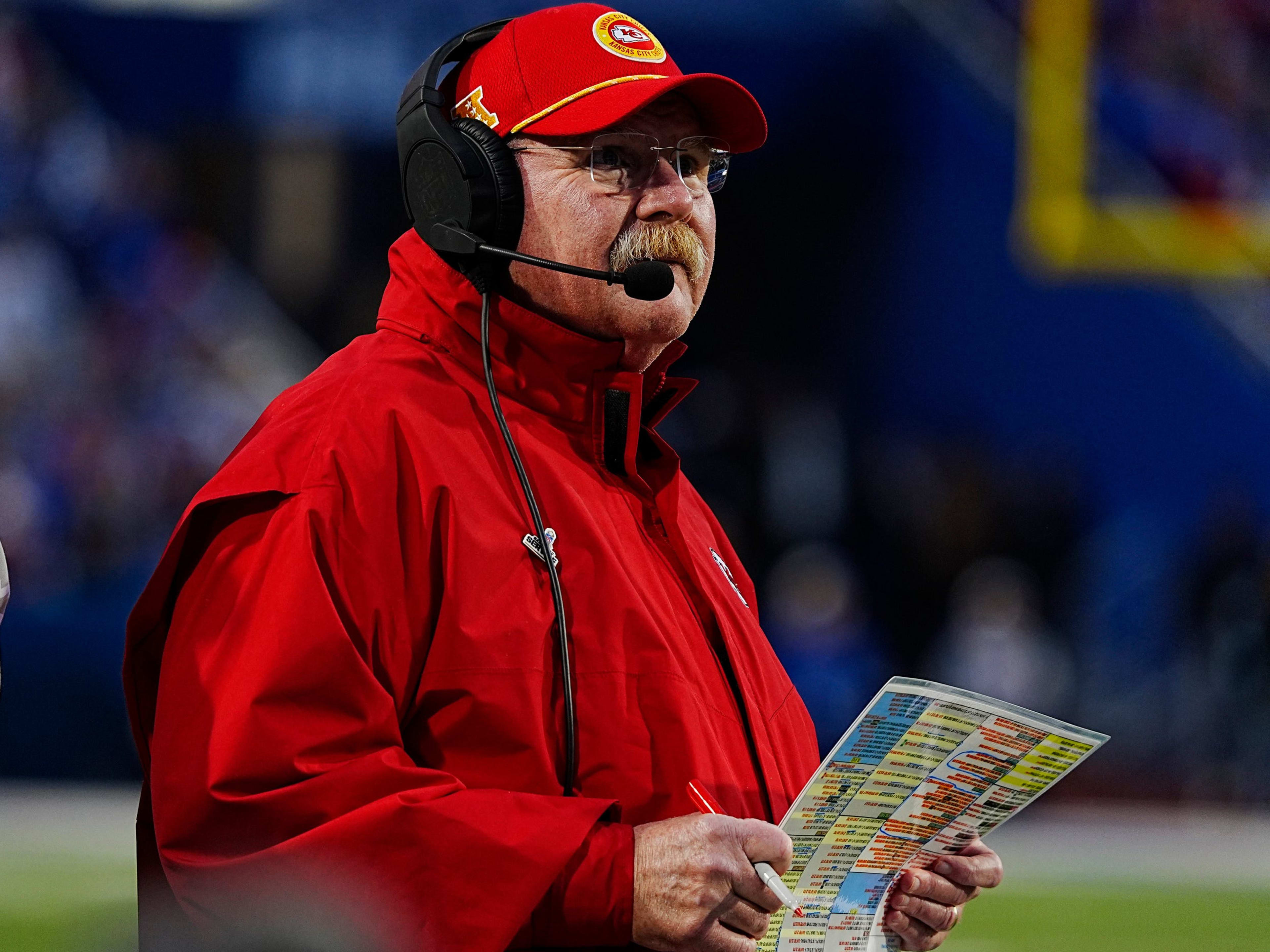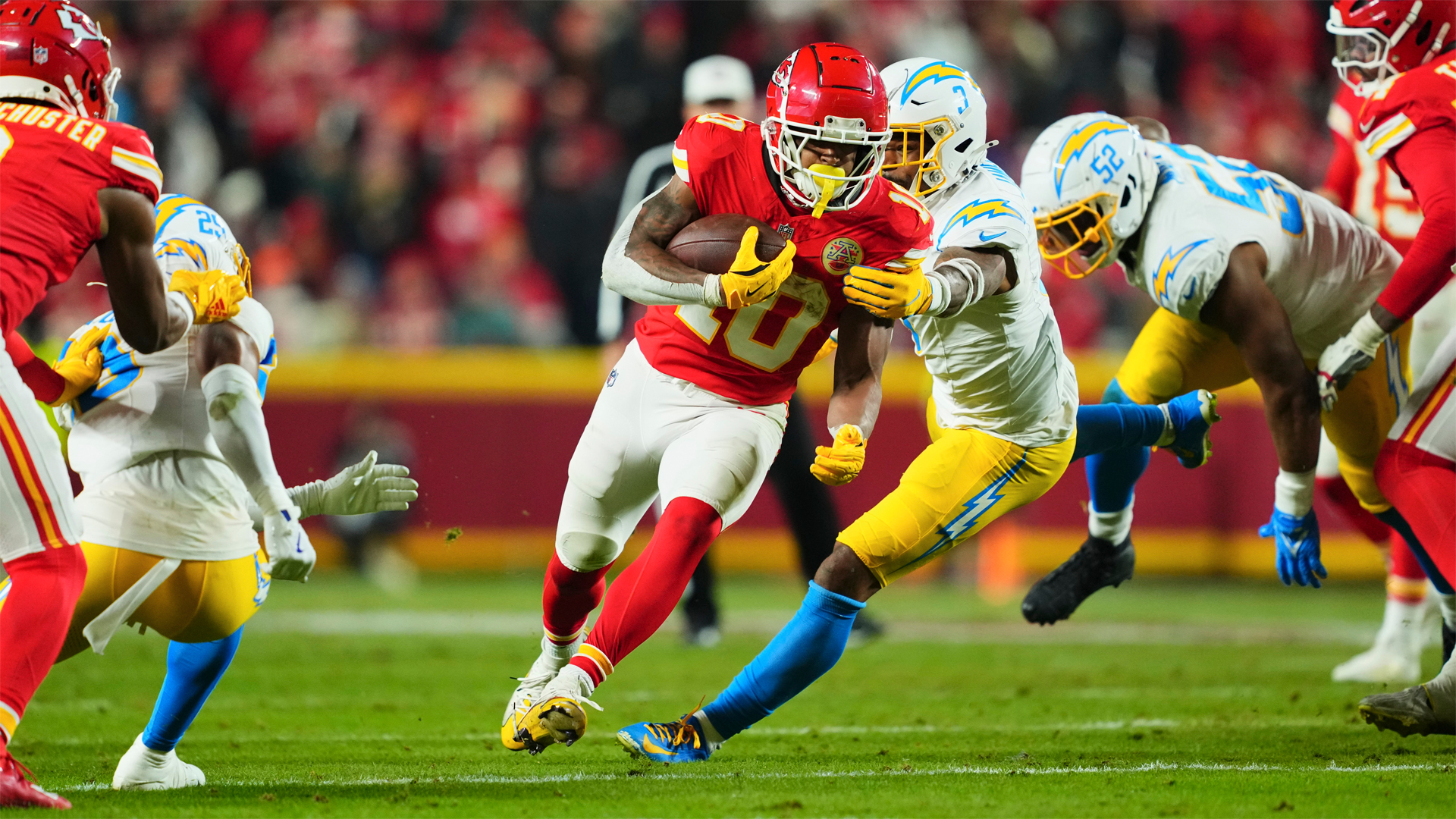The Kansas City Chiefs, perennial contenders and reigning symbols of NFL dominance, are making headlines this week for reasons that have little to do with touchdowns or Super Bowl rings. In a shocking move that has sent ripples across the league and beyond, the franchise cut a rookie player immediately after a fiery outburst targeting conservative activist Charlie Kirk.
The rookie, whose name has not been officially released by the team, allegedly unleashed a verbal tirade in the locker room, calling Kirk “a racist, a fascist mouthpiece, and a threat to LGBTQ people, immigrants, and minorities.” According to multiple reports, the incident stunned teammates and staff, igniting a debate that quickly leapt from the Chiefs’ practice facility into the national spotlight.
Andy Reid’s Explosive Response
Chiefs Head Coach Andy Reid, normally known for his calm, steady presence, responded with uncharacteristic thunder. His statement left no ambiguity about the organization’s stance:
“I’d rather lose a player than let hatred live in this locker room. The Kansas City Chiefs will never bow to fascism or toxicity!”

The roar from Reid, echoed through team communications and later picked up by every major sports outlet, was as startling as the rookie’s comments themselves. For a coach often celebrated for his fatherly demeanor and football-first philosophy, his words signaled that this controversy cut to the core of the team’s culture.
A Dream Ends Abruptly
For the rookie in question, the episode represents a devastating turn. Only weeks ago, he was living the dream—wearing a Chiefs jersey, training alongside stars like Patrick Mahomes and Travis Kelce, and working to prove himself in the most competitive environment in football. Now, his career trajectory is uncertain at best.
Analysts note that rookies occupy the most fragile positions in NFL hierarchies. Unlike established stars, they have little margin for error, both on and off the field. While veteran players may survive controversies through sheer talent and reputation, rookies can be cut overnight if the organization perceives them as a threat to unity.
The Charlie Kirk Factor
The controversy centers on Charlie Kirk, founder of Turning Point USA, a political activist known for his fiery rhetoric and polarizing positions on issues such as race, immigration, and LGBTQ rights. To his supporters, Kirk is a fearless voice defending conservative values. To his critics, he embodies intolerance and divisiveness.
For a rookie NFL player to single him out in such aggressive terms was bound to generate headlines. The Chiefs’ decision to cut the player immediately underscores the NFL’s ongoing struggle to navigate the blurred lines between personal conviction, free speech, and team culture.
Divided Reactions
Unsurprisingly, reactions to the Chiefs’ move have been sharply divided.
Supporters of Reid’s stance argue that the team has every right to protect its locker room from what it deems destructive behavior. “The Chiefs have built their dynasty on unity,” said one sports analyst. “Reid made it clear: hatred of any kind won’t find a home here.”
Others, however, framed the move as hypocritical, claiming the player was punished for calling out what he saw as bigotry. “So athletes can speak up for causes when it’s convenient, but get cut when it’s uncomfortable?” one fan wrote on social media. “That’s not leadership—that’s censorship.”
The debate highlights the precarious space athletes occupy in today’s cultural landscape, where every word can spark firestorms of interpretation.

The Chiefs’ Culture at Stake
For Kansas City, this incident comes at a delicate moment. The Chiefs are widely viewed as the NFL’s modern dynasty, with Patrick Mahomes at the helm and Reid orchestrating one of the most explosive offenses in league history. Protecting the locker room culture has been central to their success, and Reid’s decision may ultimately be seen as a move to preserve cohesion above all else.
Insiders suggest that veteran leaders in the locker room—Kelce, Mahomes, and others—have backed Reid’s handling of the situation. The message, they say, is simple: distractions will not be tolerated in a team chasing its third Super Bowl in five years.
The Rookie’s Future
What comes next for the rookie is uncertain. Some observers believe his outspoken stance could resonate with teams willing to take a chance on his talent, framing him as a figure of conviction. Others argue that the controversy may overshadow his athletic potential, making front offices wary of bringing him aboard.
In an era where off-field narratives often rival on-field performance, the rookie faces an uphill battle to rebuild his reputation.
A Broader Conversation
The Chiefs’ shocker is not an isolated incident—it’s the latest chapter in a larger NFL saga about the role of politics and activism in sports. From Colin Kaepernick’s kneeling protest to league-wide campaigns for racial justice, players’ voices have repeatedly forced the league to confront cultural flashpoints.
What distinguishes this episode is the immediacy of the response. Reid and the Chiefs didn’t hesitate, sending a message that, at least in Kansas City, the values of unity and respect outweigh the promise of potential talent.

Defining a Legacy
As the Chiefs prepare for the upcoming season, Reid’s thunderous declaration may be remembered as a defining moment of his leadership. Whether celebrated as a stand against toxicity or criticized as silencing dissent, his words—“The Kansas City Chiefs will never bow to fascism or toxicity”—will echo long after the headlines fade.
For now, the franchise finds itself at the center of a national debate about free speech, cultural identity, and the fragile balance between personal conviction and organizational values.
And in the heart of Chiefs Kingdom, one thing is clear: Andy Reid has drawn his line in the sand.
